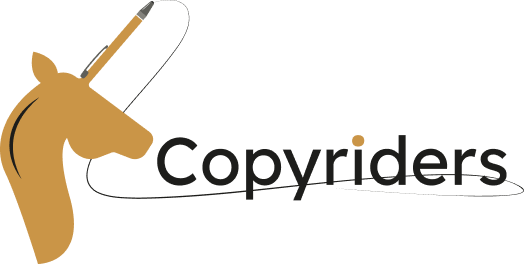A lot of times, people confuse copywriting with copyright, thinking that copywriting must have to do something with copyright laws or the property of an author. This misconception causes people to just ignore the art of copywriting completely. It might even detract people from pursuing copywriting, as they may fear some sort of law infringement!
But rest assured! This blog post will explore the clear differences between the two, because copywriting has nothing to do with copyright.
So what are the differences? Let’s dive deep below:
Copywriting vs. Copyrights)
Copywriting and copyrights are two terms that are often confused, but they refer to two very different things.
Copywriting or (copy writing) is the art of writing persuasive text for marketing or sales purposes. The main objective is to push or persuade readers to take action, such as downloading a file, making a purchase, signing up, or exploring more.
For instance, you may have seen calls-to-action (CTAs) likely written by a copywriter in:
- Blog Articles
- Email Campaigns
- Product Announcements
- Billboards
- Landing Pages and Websites
- Product catalogs
- Social Media Posts
- Sales Letters
- Electronic Books
- Interview transcriptions
- Video descriptions
Copywriting professionals often work closely with marketing teams to highlight a product’s or service’s benefits and features and to make sure that the brand or company’s message is clear and compelling.
On the other end, copyrights are a form of legal protection for original works of authorship, such as books, music, movies, artwork, and software. A copyright grants the creator or author of specific content the exclusive right to reproduce, distribute, perform, display, or license their original creation. This protection extends to published and unpublished works. It is automatically granted to the creator when the work is fixed in a tangible medium (e.g., written on paper, saved on a computer, or recorded on a video camera).
Copyright laws encourage creativity by assuring creators that their work will be protected from unauthorized use or reproduction. By granting creators control over their work, copyright laws incentivize innovation and allow artists and authors to earn a living from their creations.
All in all, copywriting and copyrights are two distinct concepts. Copywriting involves crafting persuasive and engaging content for marketing purposes, while copyrights provide legal protection for original works of authorship.
Disclaimer: if you have any questions regarding copyright law, you should likely contact a lawyer or an attorney in your country. Our team cannot provide any legal advice.

